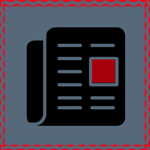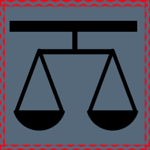Thruput provide three different hardware options for getting rid of the effects of wind turbines on radar:
- An add-on for analogue radar such as the Watchman – MIDAS II Analogue Clutter Mitigation System (ACMS)
- An add-on for digital radar such as Thales STAR 2000 – RADIX Digital Clutter Mitigation System (DCMS)
- An integrator (or way of connecting in) local infill radar – RADIX Infill Radar Integration (IRI).
How does it work?
The key to it is an add-on video processing box that sits between radar system output and the radar screen. The video processing is hardware based and dims wind turbine clutter so that it is less distracting.
Application
 Thruput technology is being progressed at a number of UK airports.
Thruput technology is being progressed at a number of UK airports.
The MIDAS II and RADIX systems work best in situations where there are widely distributed small onshore wind farms.
The integration option with in-fill radar works best for larger onshore and offshore wind farms.
In practice the system is most likely to be implemented at UK airports with their own air traffic control radar systems.
Implementation
The equipment is provided in a standard 19 inch rack mounting format so it can fit into existing equipment relatively easily. Like many systems the most difficult thing to achieve is developing a safety case and implementing the mitigation in practice.
Siting Rules
 The analogue and digital systems are best for mitigating a number of smaller wind farms in airspace that is of lower operational importance.
The analogue and digital systems are best for mitigating a number of smaller wind farms in airspace that is of lower operational importance.
Typically this means in a place where aircraft are unlikely to be manoeuvring and flying at higher speeds. In addition, the density of air traffic will not be too high either.
Cost
 Typically the bulk of the cost of a new mitigation system at a specific airport is born by the first wind developer to benefit from it. Subsequent wind farm developers then pay for their additional mitigation costs and contribute towards the original mitigation costs.
Typically the bulk of the cost of a new mitigation system at a specific airport is born by the first wind developer to benefit from it. Subsequent wind farm developers then pay for their additional mitigation costs and contribute towards the original mitigation costs.
There are airports that are exploring mitigation funding themselves with subsequent financial contributions expected from wind farm developers who benefit from the mitigation.
Comparison to Other Mitigation Technologies
 Essentially the analogue and digital Thruput systems are data or video processing systems that reduce radar returns from wind turbines whilst continuing to display (as far as possible) wind turbine returns from aircraft. There are therefore similarities (in some of the principles of operation at least) with the capabilities of Project RM, Terma Scanter and Thales STAR 2000 radar.
Essentially the analogue and digital Thruput systems are data or video processing systems that reduce radar returns from wind turbines whilst continuing to display (as far as possible) wind turbine returns from aircraft. There are therefore similarities (in some of the principles of operation at least) with the capabilities of Project RM, Terma Scanter and Thales STAR 2000 radar.
As an integrator Thruput enables the integration of in-fill mitigation technologies such as Aveillant, C Speed and Terma Scanter radar.
Summary
Thruput mitigation technologies are relatively simple to implement at a technical level. They are most suited to individual airports where there are a number of smaller wind developments in airspace of lesser operational importance.
Other Mitigation Technologies
- Aveillant 3D Holographic Radar™
- Terma SCANTER 4002 Radar
- C Speed LightWave Radar
- Raytheon Project RM
- Thales STAR 2000 – Additional software and processing capabilities
- Cyrrus Smartner – A system that provides a combined radar picture from multiple radar
References
Analogue Clutter Mitigation GF MIDAS III, MIDAS ACMS DN 1453-0000 V 2.0, Thruput Limited, Decmber 2013.
RADIX, Digital Radar Clutter Mitigation, RADIX DCMS DN 1454-0000 V 2.0, Thruput Limited, December 2013.
Clutter Processing, Thruput Limited. (Last accessed 04/06/2015)
